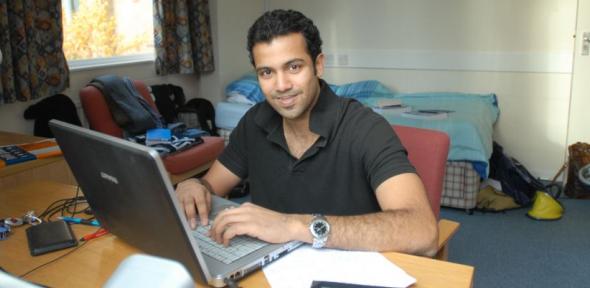
All undergraduate courses at the University of Cambridge lead to a single degree, the Bachelor of Arts. When you graduate, providing you pass the necessary examinations, you will be awarded a BA Hons. (Cantab.). In Computer Science, Engineering, Mathematics and some Science subjects, you can study for a fourth year and obtain a second degree in addition to your BA; these integrated masters courses lead to either a Master of Engineering (MEng), Master of Mathematics (MMath), or Master of Natural Sciences (MSci).
On this page you can find information about:
The Tripos system
All Cambridge undergraduate courses are assessed through examinations in broad subject areas called Triposes. Each Tripos is divided into one or more Parts and you need to complete a number of Parts in one or more Triposes to qualify for the B.A. degree. The table below illustrates the different ways in which Triposes are divided into Parts; there are some restrictions on how you can combine Parts together to make your degree. Most students choose to study all the Parts in a single Tripos but this is not always the case; some Triposes (e.g., Chemical Engineering and Management Studies) are only available from your second or third year at Cambridge.
| Tripos examples | Year 1 | Year 2 | Year 3 | Year 4 | Degree |
|---|---|---|---|---|---|
| Engineering | Part IA | Part IB | Part IIA | Part IIB |
BA MEng |
|
Chemical Engineering (i.e., no direct entry on admission) |
Part I | Part IIA | Part IIB |
BA MEng |
|
| Natural Sciences | Part IA | Part IB | Part II |
Part III (optional) |
BA MSci (optional) |
|
Economics Law |
Part IA | Part IB | Part II | BA | |
|
Human, Social, and Political Sciences Theological and Religious Studies |
Part I | Part IIA | Part IIB | BA | |
| History | PartI | Part II | BA | ||
|
Management Studies (i.e., no direct entry on admission) |
Single Part |
BA | |||
|
Medical Sciences and Veterinary Sciences (i.e., transfer to another Tripos for a further year, before taking a clinical course in medicine) |
Part IA | Part IB | (other) | BA | |
What you will graduate with
Your degree certificate will not state the subject(s) that you have studied: the degree you receive is the BA degree. You do not, for example, get a BA in History but you could take a Part I in the Historical Tripos and a Part II in the Historical Tripos and thus qualify for the BA degree. The University will provide you with a comprehensive transcript listing the papers you took and the results obtained to supplement your degree certificate.
Students entering from October 2020
All undergraduate Tripos students beginning their study in October 2020 and onward will receive an overall degree classification at the end of their final year. The algorithm for obtaining the final classification will vary by Tripos. In addition, each part of the Tripos will receive an individually classed result, but your final overall classification will be considered your degree outcome. More detail is available on our pages on Degree classes.
Students entering prior to October 2020
No official class is assigned to the overall degree issued by the University of Cambridge. Instead, each Part of a Tripos is self-contained and you obtain separate results for each one: there is no averaging out for a final degree. You may have heard the phrase "a double first", which means that a first class was achieved in two sets of examinations corresponding to two different Parts of Triposes.
Declared to have deserved honours
In exceptional circumstances, for example where there is satisfactory evidence that a candidate has been hindered by illness or other grave cause, the University might declare you to have deserved honours and the following statement may be appended to any certificate issued (awards from Easter Term 2019):
This candidate has been awarded an allowance in accordance with the University’s regulations. The authorities concerned are of the opinion that, for good reason, it would be unfair to classify the candidate since they believe that this would not adequately represent the candidate’s attainment. They have accordingly agreed to declare the candidate to have deserved honours in this examination.
Students who do not reach the honours standard may be awarded an Ordinary BA Degree.
Cambridge Terms
The academic year commences on 1st October and finishes on 30th September each year. The year is divided into three terms, with a Long vacation:
- Michaelmas term (October – December)
- Lent term (January – March)
- Easter term (April – June)
- Long vacation (July – September)
Undergraduate students are required to be in residence for each of the three terms (Michaelmas, Lent and Easter). Graduate students are usually in residence for the full academic year.
The structure of graduate courses at the University of Cambridge
Graduate Admissions summarise each qualification type offered by the University, visit: https://www.postgraduate.study.cam.ac.uk/courses/qualifications for more information.
